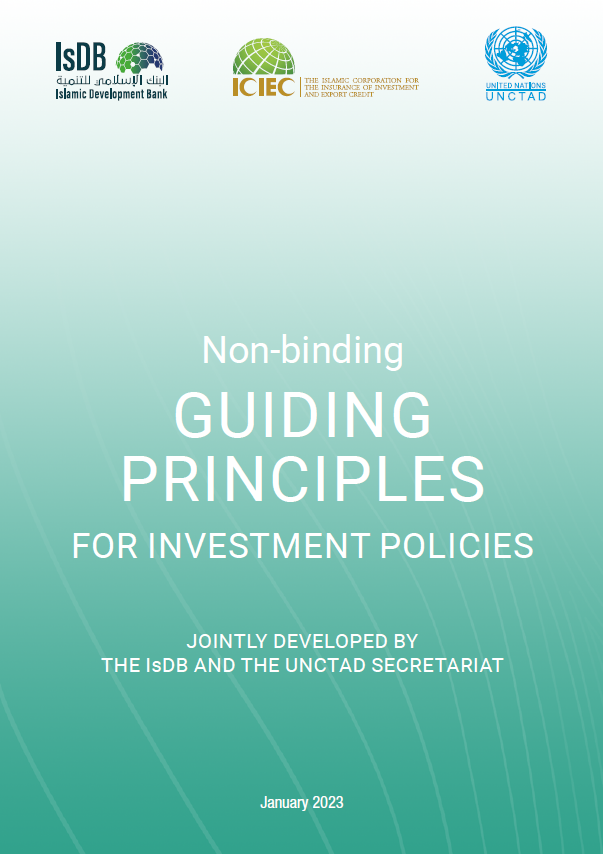Islamic Development Bank - UNCTAD Guiding Principles for Investment Policies
UNCTAD, the Islamic Development Bank (IsDB) and the Islamic Corporation for the Insurance of Investment and Export Credit (ICIEC) have jointly developed a set of non-binding Guiding Principles for Investment Policies in IsDB member countries. The Guiding Principles were developed as part of the ongoing cooperation between UNCTAD and the IsDB on issues relating to international investment agreements (IIAs).
The Guiding Principles come at a time of mounting economic, social and environmental challenges, which highlight the critical role of investment as a driver of equitable economic and social growth. Mobilizing investment and ensuring that it contributes to the sustainable development objectives is a priority for all countries and for IsDB member countries in particular. The challenges IsDB member countries face today, and the development objectives the IsDB has set itself, call for policies – at the national, regional and international levels – that effectively attract investment and help harness it for sustainable development. In line with the priority areas of the IsDB in pursuing the 2030 Agenda as well as the provisions of the IsDB Charter, these Guiding Principles can help develop a coherent, consciously designed and consolidated approach towards investment policymaking.
The design of the Guiding Principles has been inspired by various sources of international law and policy. The Principles, jointly developed by the IsDB and UNCTAD, draw on UNCTAD’s Core Investment Principles that form an integral part of UNCTAD’s Investment Policy Framework for Sustainable Development (2015). The Principles are in line with the Addis Ababa Action Agenda adopted during the Third UN International Conference on Financing for Development. The Principles benefit from UNCTAD’s ongoing technical assistance and capacity development programmes to IsDB member countries which have, since 2005, provided training to over 600 government officials from IsDB member countries on key issues of investment policymaking.
















